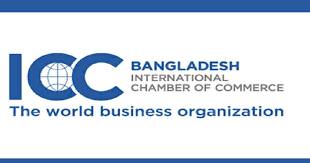
DHAKA, Aug 22, 2024 (BSS) - International Chamber of Commerce-Bangladesh (ICCB) has termed the BBIN (Bangladesh, Bhutan, India and Nepal) agreement as a catalyst for economic growth and development.
The BBIN (Bangladesh, Bhutan, India and Nepal) initiative, officially launched in 2015, has created to tackle the logistical and economic challenges that have historically hindered South Asia's development, according to the editorial of the current News Bulletin (April-June' 2024 issue) of International Chamber of Commerce-Bangladesh (ICCB) released today.
A key objective of the initiative is to strengthen economic collaboration. By streamlining the cross-border flow of goods and services, the initiative can greatly lower transportation expenses and reduce transit durations.
This is especially important for landlocked nations such as Bhutan and Nepal, which depend heavily on neighboring countries for access to global markets. Improved connectivity can facilitate trade, investment, boost regional tourism, and create jobs, all of which will contribute to the economic growth of the region.
Bangladesh, India, and Nepal have ratified the 2015 Agreement, but Bhutan has not yet done so, mainly because of environmental concerns and infrastructure issues. However, Bhutan's recent participation in meetings as an observer suggests a possible interest in rejoining the initiative.
A key component of the BBIN initiative is the BBIN Motor Vehicles Agreement (MVA), signed in 2015, which is designed to facilitate smooth cross-border vehicle movement and eliminate significant trade obstacles, such as complex border checks and inconsistent customs procedures that have historically impeded trade efficiency. By streamlining these processes, the BBIN agreement can expand market access, diversify trade, lower costs, and enhance competitiveness.
The TIR Convention (1975), the only global transit system, simplifies and secures international goods transport by guaranteeing customs duties and taxes. With 76 Contracting Parties, including China, India, and Pakistan, it offers a reliable method for cross-border trade while protecting countries' revenues.
Bangladesh plays a key role in initiatives like the BBIN MVA, BCIM Corridor, and BIMSTEC, aimed at expanding market access and fostering economic growth. The TIR system will strengthen regional integration and boost Bangladesh's access to global markets.
The BBIN sub-region faces high trade costs due to poor infrastructure and logistics. A CUTS analysis of GDP and trade from 2010 to 2019 shows a positive link between the two. In 2010, interregional trade was $6 billion with a GDP of $1.7 trillion. By 2019, trade increased to $16 billion, and GDP nearly doubled to $3.2 trillion, making the BBIN one of the fastest-growing regions globally.
Due to its strategic location, Bangladesh could become a key transit route for trade between northeast India and the rest of India, as well as provide better port access for Bhutan and Nepal. If integration occurs, CUTS International estimates the region's combined GDP could surpass $8.3 trillion by 2035.
As of August 2020, the Asian Development Bank (ADB) has invested over $15 billion through the SASEC program in transport, energy, trade, economic corridors, and ICT to enhance connectivity.
Given the significant investments in infrastructure, it's crucial for all countries to take decisive action to implement the BBIN and MVA Agreements. Bangladesh, Bhutan, and Nepal should also join the TIR Convention to improve port access for landlocked Nepal and Bhutan and facilitate cross-border vehicle movement.